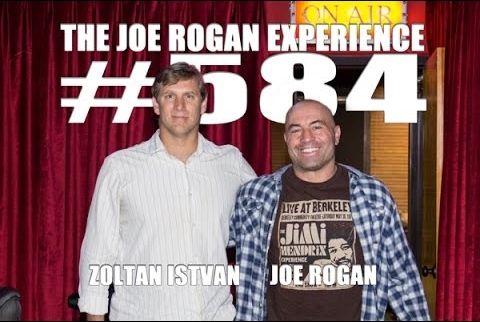Oculus Rift roller coaster reaction.



This is NOT the way to encourage people to use this device, nor develop anything for it at all. Shame on them!
“By submitting User Content through the Services, you grant Oculus a worldwide, irrevocable, perpetual (i.e. lasting forever), non-exclusive, transferable, royalty-free and fully sublicensable (i.e. we can grant this right to others) right to use, copy, display, store, adapt, publicly perform and distribute such User Content in connection with the Services. You irrevocably consent to any and all acts or omissions by us or persons authorized by us that may infringe any moral right (or analogous right) in your User Content.”
The Oculus Rift is starting to ship, and we’re pretty happy with it. While it’s cool, like any interesting gadget, it’s worth looking through the Terms of Service, because there are some worrisome things included.
Quite a few of the items in the document are pretty typical in any sort of Terms of Service agreement. These include details like waiving your right to a juried trial and agreeing to go into arbitration instead. Oculus can also terminate your service for myriad reasons, and third parties can collect information on you. However, there are some even more devilish details in the Rift’s full Terms of Service.
Oculus (and basically Facebook) owns creative content
If you create something with the Rift, the Terms of Service say that you surrender all rights to that work and that Oculus can use it whenever it wants, for whatever purposes:

https://youtube.com/watch?v=9grWo5ZofmA
A lot of transhumanism friends have asked me to write about Bernie Sanders, so here are my thoughts:
The transhumanism movement has been dramatically growing in size—and most of that growth is from millennials and youth joining. Transhumanists want to use science and technology to radically improve the human race, and the onslaught of new gear and gadgets to do that—like virtual reality, robots, and chip implants —are giving them plenty of ammunition to do that.
But what has caught many people off guard—including myself who probably best fits into the category: left-leaning Libertarian—is the amount of support transhumanists are giving to Bernie Sanders’s presidential campaign. Historically, transhumanism (and its de facto home: Silicon Valley) has been Libertarian-minded —with a hands-off attitude towards the government, religion, and basically any authority trying to tell them what to do or how to innovate. But with the demographics of the transhumanism movement sharply changing from older academics and technologists to young people—especially those in college—the push towards more leftist and progressive-leaning ideas is strong. For many young transhumanists, they believe they have found an ideal in Sanders.
While I like the charisma of Sanders and his long standing devotion to the people—and that is enough for me to say he’d be a good president for change—the reality is capitalism is still a hallmark of the American way. For the next four and maybe even eight years, capitalism won’t be going anywhere. Afterward, though, within 10–25 years, when robots, software, and AI really start dismantling capitalism as we know it (see my latest TechCrunch article and thoughts on a Universal Basic Income), it will be a totally different story.
Like it or not, millennials and youth obsess over this type of economy stuff—especially machines taking jobs. They know future employment statistics better than many 30-year veteran business executives running publicly traded companies. The dangerous truth is many young people know they likely won’t have jobs in the future. And neither will most of the executives for that matter, since they too can (and will) be replaced by super intelligent machines programmed to make sound mathematical business decisions.

“[T]oday, the final, consumer-ready version of the Rift arrives ready to show virtual reality’s promise to the world — as well as the hurdles that consumer VR still has to overcome.”

There are some kernels of brilliance scattered amid the dead spaces of “Creative Control,” a microbudgeted techno-drama.
In a near-future Brooklyn, marketing consultant David (played by Benjamin Dickinson, the film’s director and co-writer) is assigned to create an ad campaign for Augmenta, a new form of augmented-reality glasses that will add a high-tech layer to the viewer’s reality. After deciding to give a pair to a hip artist — in this case, the musician/comedian Reggie Watts, here wittily sending up his own image — David starts noodling with a pair himself.
While he ignores his flighty yoga-instructor girlfriend, Juliette (Nora Zehetner), David starts to create a sexy avatar based on Sophie (Alexia Rasmussen), the fashion-designer girlfriend of his best friend, Wim (Dan Gill), a philandering photographer. David and Sophie start crushing on each other, but it’s nothing to the sparks David feels with her simulated version.


The unholy, skinless, bloody creatures shambled toward me on all sides. My pistol was pitifully inadequate. For the first time ever, I pulled a VR rig off my head in the middle of a demo.
Not even extreme nausea had caused me to do so before Thursday, when I demoed the HTC Vive game The Brookhaven Experiment at Valve Software’s booth at the 2016 Game Developers Conference. I’d always choked down the bile and forced myself to finish the demo rather than bail, even though this is almost always a bad decision. Call it stupid gamer pride.
The Brookhaven Experiment is what happens when Resident Evil is ported into VR. I had known in advance that I was about to play a survival horror game. I had not known that this would result in my actually fearing for my life, because it was the first survival horror game I’d played on the Vive.



Augmented and Virtual Reality are two areas that tech companies and IT shops can make huge impacts in multiple areas. Enterprise Apps and Services such as with ERP & CRM solutions, Content & Media Management, BI, Security, Testing, Training, etc. List just goes on and on. For Consumers it is everything from theme parks, to movies, to home theaters & streaming TV/ Videos, etc. The real question who will get there 1st on the enterprise apps & services piece as well as who has the most to offer in all areas?
Another concept to think about is how can VR be leveraged in security screening and identity management more as well as leveraged more in electronic currency and transactions in the near future.
Growing numbers of manufacturing professionals in the automotive space are embracing augmented-reality technology, leveraging powerful new tools to optimize efficiency and minimize mistakes.
As automotive manufacturers understand all too well, the pressures applied by an increasingly competitive marketplace create extreme and at times competing demands for safety, quality, consistency and efficiency.